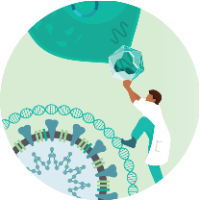Towards deterministic bioprocesses
Vaccine Insights 2025; 4(4), 101–108
DOI: 10.18609/vac.2025.020

This article is part of our ‘Rising Stars’ series, giving a platform to the emerging leaders of the sector. In this series, we share the perspectives of fledgling thought-leaders, chosen by our Editorial Advisory Board members as future stars in their field.
Sam Reffsin was nominated by Editorial Advisory Board member Christopher Ton, Principal Scientist, Vaccines & Advanced Biotechnologies Process Development, Merck & Co.
While robustness in a bioprocess is defined by the consistent achievement of product quality despite internal and external variabilities, the reality of biological plasticity often leads to heterogeneous cellular phenotypes within isogenic populations. This insight article explores the implications of biological nondeterminism for bioprocess development, emphasizing the importance of systems biology approaches and advanced molecular engineering to optimize robustness and yield. Techniques such as single-cell genomics, DNA barcoding, and in silico modeling, which provide insights into cellular heterogeneity and enable the mapping of cell states across dynamic bioprocess phases, are discussed. Additionally, the need for proactive engagement with regulatory agencies, particularly in the context of bridging clinical trials when modifications to the way approved products are manufactured occurs, is highlighted. By reevaluating legacy processes and implementing a pre-investment strategy in systems biology, the field can enhance product manufacturability and ensure compliance with evolving regulatory standards. The goal of deterministic bioprocessing in vaccine production addresses the inherent biological nondeterminism observed in cellular systems, ultimately supporting the development of safe and effective vaccines.
